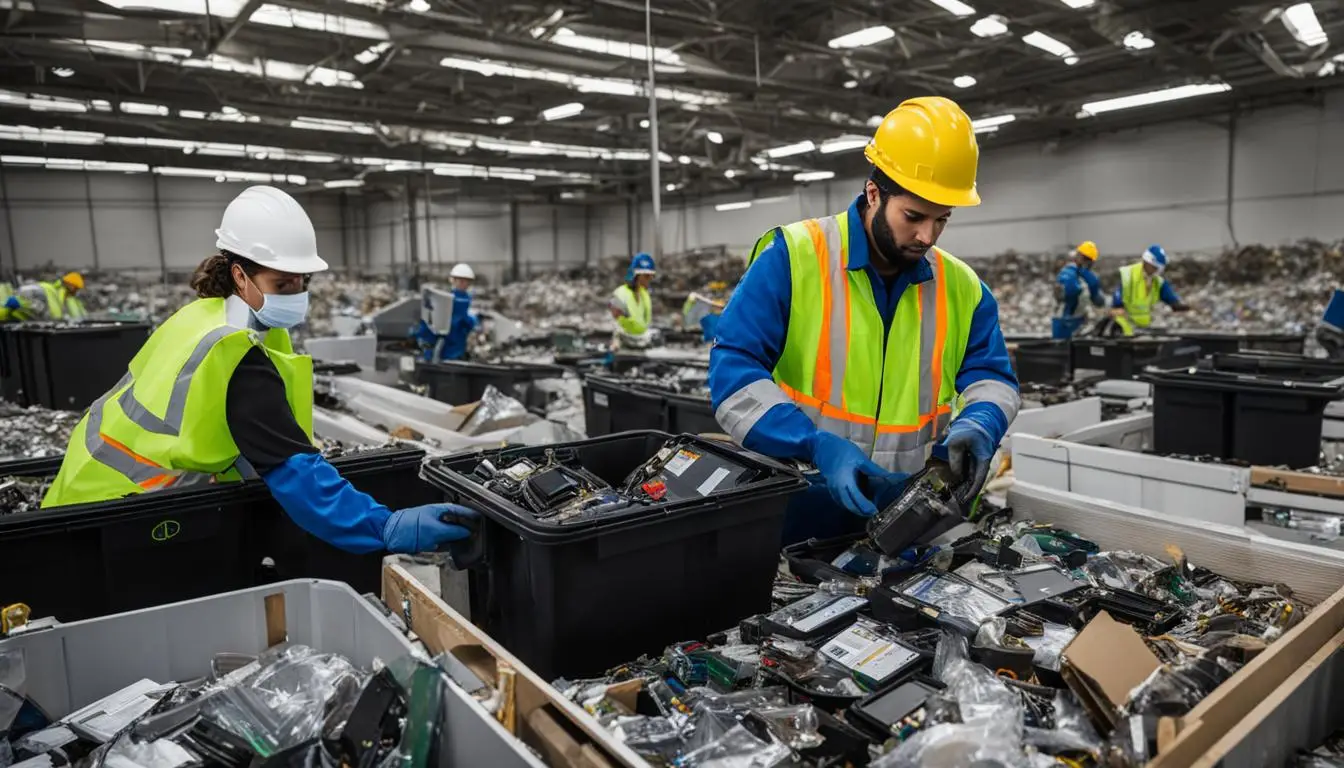Minimising E-Waste in the Hosting Industry
As we advance into the digital age, the hosting industry must address the often-overlooked impact of e-waste. E-waste—ranging from outdated servers to other unused or non-functional electronic equipment—presents significant environmental and health challenges if not managed responsibly. At MyHostingSpace, we are firmly committed to sustainable e-waste management, implementing practices to reduce waste, recycle responsibly, and extend equipment lifecycles, in line with our core ESG values.
Understanding the E-Waste Challenge in Hosting
Data centres, colocation facilities, and hosting providers depend on an extensive array of electronic equipment, including servers, storage devices, networking hardware, and power systems. With the rapid pace of technological advancement, hardware refresh rates have increased, with many organisations upgrading or replacing equipment every three to five years to meet evolving performance demands. This accelerated replacement cycle has led to growing e-waste levels, presenting two primary challenges:
- Resource Depletion: Electronic devices contain valuable materials like gold, silver, copper, and rare earth elements. Once discarded, these resources are effectively lost unless recovered through recycling processes.
- Environmental Impact: If not disposed of responsibly, e-waste can release toxic substances such as lead, mercury, and cadmium into soil and water sources, creating health risks for surrounding communities and environmental harm.
MyHostingSpace’s Approach to E-Waste Management
At MyHostingSpace, we take a holistic approach to e-waste management that emphasises the entire lifecycle of IT equipment. By considering each phase—from acquisition to disposal—we strive to extend hardware usability while minimising our environmental impact. Here are some key steps we take to ensure sustainable practices across our operations:
1. Choosing Sustainable Hardware
When selecting equipment, we consider both performance and environmental factors, opting for hardware from manufacturers with robust sustainability commitments and recycling programmes. We focus on energy-efficient models designed for easy repair and refurbishment, ultimately lowering the frequency of replacement and reducing e-waste output.
2. Extending Hardware Lifecycles
Lifecycle management is central to e-waste reduction. We utilise the following strategies to maximise equipment longevity:
- Repurposing and Refurbishment: Where possible, we repurpose retired equipment for other functions within our facility. For instance, servers that no longer meet performance standards for hosting are often redeployed in backup or development environments.
- Regular Maintenance: Our teams follow a strict maintenance schedule, ensuring that all equipment performs optimally and identifying hardware that may require upgrades, thus extending its useful life.
- Modular Upgrades: Instead of replacing entire units, we prioritise modular upgrades, such as adding new memory or swapping out individual components, to boost existing systems’ performance without the need for a full-scale hardware overhaul.
3. Implementing a Rigorous Recycling Programme
MyHostingSpace adheres to responsible recycling practices for all e-waste that reaches end-of-life (EOL) status. Our approach involves the following steps:
- Partnering with Certified E-Waste Recyclers: We work exclusively with certified e-waste recyclers who comply with WEEE (Waste Electrical and Electronic Equipment) regulations, ensuring that all e-waste is processed and reclaimed to the highest standards.
- Data Sanitisation: Before any equipment leaves our facility for recycling, it undergoes rigorous data sanitisation to protect client data. This process involves secure data erasure or physical destruction of storage components where required, in line with GDPR and industry compliance standards.
- Material Recovery: Our recycling partners recover precious metals and other valuable components from obsolete devices, allowing these materials to re-enter the manufacturing supply chain and reducing the demand for new raw materials.
4. Encouraging a Circular Economy in the Hosting Sector
MyHostingSpace advocates for a circular economy within the hosting industry by prioritising equipment refurbishment and resale. We work closely with industry partners to encourage a market for pre-owned IT hardware. This not only provides smaller companies access to affordable and reliable equipment but also curbs unnecessary e-waste generation.
The Role of Digitalisation and Automation in E-Waste Reduction
Advancements in automation and virtualisation technology have also been instrumental in helping us reduce e-waste. By virtualising workloads, MyHostingSpace can consolidate services on fewer physical machines, lowering both energy consumption and hardware requirements. Our automated monitoring systems continuously assess server health and performance, allowing us to proactively manage resources and avoid premature hardware retirement.
Setting Benchmarks in Sustainable Hosting
At MyHostingSpace, we are proud to set benchmarks for sustainability in the hosting industry. Our commitment to minimising e-waste aligns with global initiatives to foster a greener, more sustainable future. By refining our e-waste management practices and advocating for a circular economy, we aim to reduce our carbon footprint while supporting our clients in achieving their own ESG objectives.
Looking Ahead
We are constantly exploring new innovations and partnerships to further enhance our e-waste management efforts. From leveraging AI-driven analytics for more efficient hardware utilisation to expanding our refurbishment programmes, MyHostingSpace remains committed to leading sustainable practices within the hosting sector.






